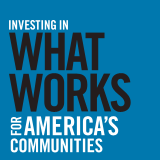 Jane Ellen Stevens, editor of ACEStooHigh, describes how trauma-informed practices in San Francisco’s El Dorado Elementary School reduced suspensions by 89% and improved academic achievement.
Jane Ellen Stevens, editor of ACEStooHigh, describes how trauma-informed practices in San Francisco’s El Dorado Elementary School reduced suspensions by 89% and improved academic achievement.
“Childhood trauma is a public health issue,” says Joyce Dorado, director of HEARTS — Healthy Environments and Response to Trauma in Schools. “It’s really common, and the way kids react to it gets them into trouble in school.”
In fact, serious and chronic childhood trauma is so common that most people in the U.S. have experienced at least one type out of ten measured by the CDC’s Adverse Childhood Experiences Study. These include physical, sexual or verbal abuse; physical or emotional neglect; and five types of family dysfunction — family violence, living with alcoholic (or other drug-addicted) or mentally ill parents, losing a parent to divorce or abandonment, or a family member who’s in prison.
And almost half the nation’s children have experienced at least one or more types of serious childhood trauma, as measured by a recent survey on adverse childhood experiences by the National Survey of Children’s Health. This translates into an estimated 35 million children nationwide.
In 2007, after San Francisco Chronicle reporter Jill Tucker did a story about the overwhelming number of San Francisco schoolchildren who had post-traumatic stress disorder, the San Francisco Unified School District asked Dorado and Miriam Martinez, then director of the Division of Infant, Child, and Adolescent Psychiatry at University of California-San Francisco (UCSF)-San Francisco General Hospital, if anything could be done about it.
UCSF was providing therapy to some students, but “we weren’t addressing the larger school culture,” says Dorado. “We could bring kids into our offices, process their trauma, teach them how to be calm, and send them back into their classrooms, where they’d inadvertently be triggered again, because teachers weren’t aware of what complex trauma does to kids’ behavior in school.”
Borrowing from the book, Helping Traumatized Children Learn, and the trauma-informed “flexible framework” practices developed for schools in Massachusetts by the Trauma and Learning Policy Initiative, Dorado and Martinez developed HEARTS. They selected three schools in the San Francisco Bay Area to pilot their program. “We were looking for schools that understood the whole school mental health approach to trauma, and that understood that this approach was going to help improve their academic achievement,” explains Dorado.
Continue reading this article, to learn more about the effects of a trauma-informed and restorative approach, on children in San Francisco’s El-Dorado Elementary School.